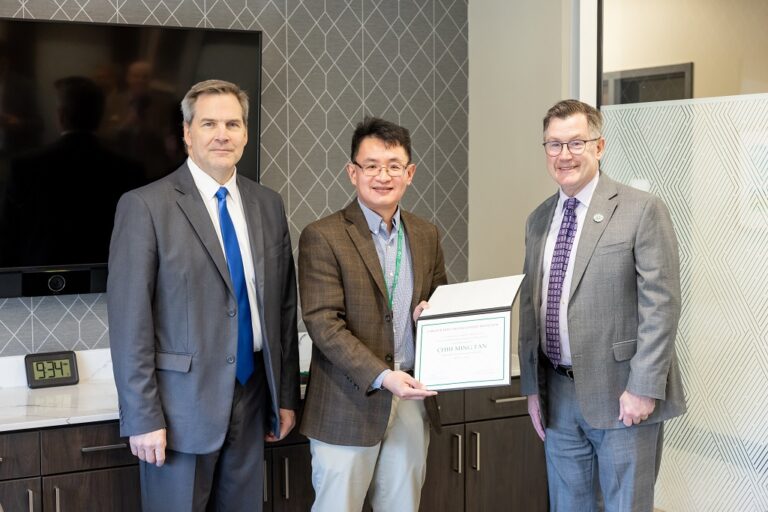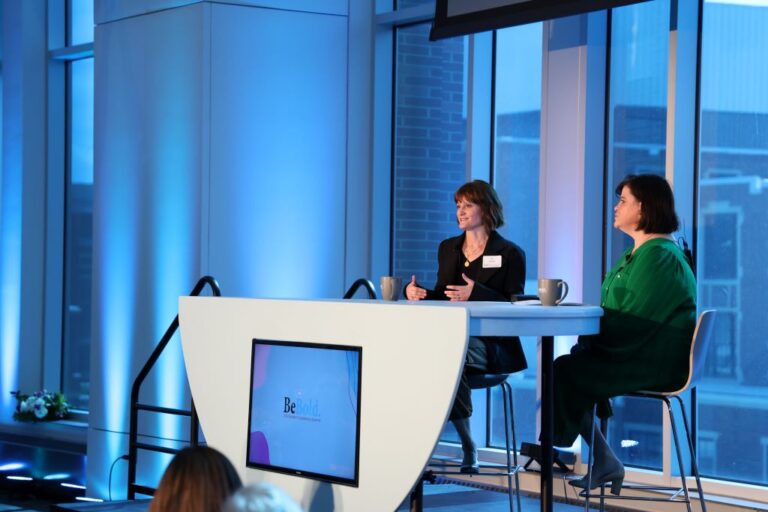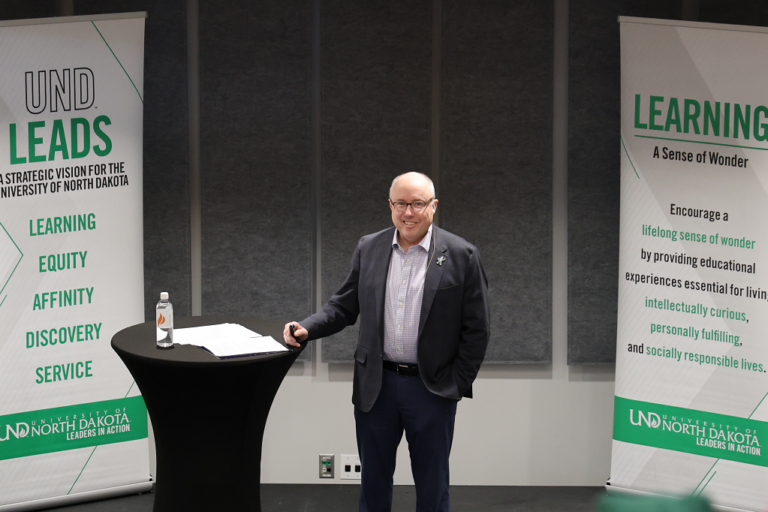Embracing technology
CIO lays out tech upgrades to keep campus cyber safe, bolster research and enhance student experiences

Have you received an unexpected email from “President Kennedy” asking if you are available to meet? Or a message from an administrator asking you to purchase something? Or a job offer as a secret shopper from the University System?
These emails – all phishing attempts – have caught a lot of clicks on campus, said Chief Information Officer Madhavi Marasinghe.
As these and other scams become more sophisticated, so have UND’s responses.
“There are always threats, and it will only get worse,” said Marasinghe. “Everyone uses technology, and we are working to protect the campus.”
Along with new technology that will allow members of the campus community to click a button on their email to report phishing attempts, Marasinghe’s office will offer cyber-awareness events.
Training for a lifetime
Two sessions on Monday, Feb. 25, will help faculty and staff learn to protect themselves at work and at home, on all devices. They will be held from 10 to 11 a.m. and 1 to 2 p.m. in the Lecture Bowl of the Memorial Union.
An interactive session on Tuesday, Feb. 26, 10 a.m. to 2 p.m. on the main floor of the Memorial Union, will be offered for students. They can sign up for Duo, which adds another layer of protection to email and Office products. It will launch March 20 for students; faculty and staff went live earlier in February.
Both events will feature giveaways and information on how to avoid being an online victim, whether at work or home.
“This is not just for work, but training for a lifetime,” said Marasinghe. “We are a community. We want to protect our people, resources, and the University. You will learn how to protect yourself and what to look out for in phishing emails.”
In addition, Marasinghe said her office will run regular phishing campaigns on campus.
“We will send a phishing message to campus and see how people respond,” said Marasinghe. “Are they clicking? Are they providing their passwords? If people click, we’ll educate them immediately on how to avoid getting phished.”
Moving forward
The awareness campaign is part of the One IT strategic plan to improve technology for users across campus.
One project – to bring 10 gigs of data speed to academic buildings and 1 gig to desktops – was accelerated after a provost forum discussion by Marasinghe in which she focused on IT goals.

“I asked Madhavi about the IT strategic plan after she spoke at the provost forum,” said Bob Newman, professor of biology. “Biology, from genetic to ecosystem research, is big data science. We study living things from genes to ecosystems, and all benefit from computational and big data approaches. We want to be an R1 institution, and it’s great that needs of academic researchers were prioritized. I wanted to know when it would happen.”
Newman, who performs ecological wildlife research, uses remote sensing and drones to map how bison and other animals move on the landscape of Theodore Roosevelt National Park, said higher data speeds will increase competitiveness for research grants as well as collaboration.
“It can be a showstopper if we’re not able to move the data fast enough,” said Newman. “Every time we fly, we generate a large amount of imagery and data. It doesn’t take long to fill a large hard drive. We – and researchers in other departments – need high-speed connections. We are on the right path and heading in the right direction to continue this kind of work and be competitive.”
Serving students
Network speeds are important to students too, said Kaleb Dschaak, UND student body vice president who is majoring in Information Systems and Marketing.
“Network upgrades pave the way to the future,” said Dschaak, who wants to work with big data. “It’s important for student career paths. The Big Data initiative (a $10-million investment, which will also add computational scientists) also works well with Gov. Burgum’s initiatives.”
And, said Dschaak, students are bringing more and more devices to campus. That could include laptops, phones, gaming systems and smart watches.
“A lot of buildings don’t provide enough bandwidth, and students are connecting multiple devices,” he said. “And an hour before the test, you really want the Internet to work!”
Marasinghe said she’s heard the concerns.
“As we move toward R1 Carnegie research status, we want to have the infrastructure ready so researchers can work,” she said. “We’re upgrading our classrooms, offering a new help desk system, increasing security, streamlining access to software, improving efficiency, and more. Technology is critical, and we are moving forward.”


